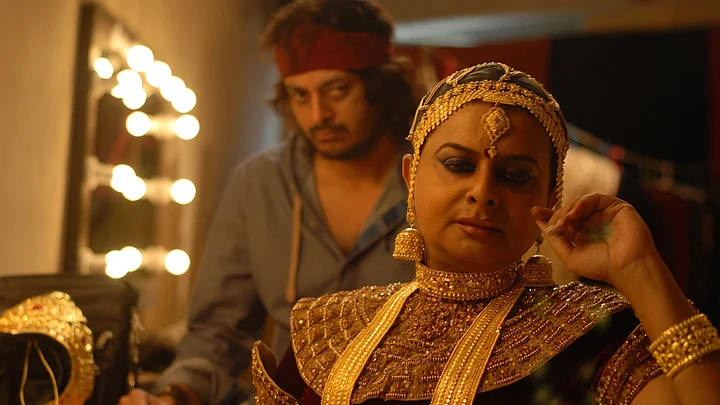The year was 1992. The great Bengali filmmaker, Satyajit Ray had breathed his last, while a little film titled Hirer Angti came to life. Perhaps a coincidence, or perhaps the grand plan of fate passing the baton from a stalwart to the new blood. For the director of the film, Rituparno Ghosh, it was just the start of a blazing career minus the blitzkrieg of lowbrow commercial cinema that was the order of the day.
The Bengali middle class, that species of the highly touchy-feely kind who revealed themselves through conversations, were part of Ghosh’s world, his immaculate exploration of a strata grappling with their inner demons, behind closed doors. A self-confessed ‘womanist — not a feminist’, he didn’t shy away from depicting women and their desires, his characters always carried their sexual urge and romantic ache. He portrayed both with measure and economy, and there were no sprawled bodies for vicarious viewing. His engagement with loneliness and melancholia made him a Bengali middle class hero in no time.
It was a corollary of Ghosh’s whole evolution, the consciousness of his earlier youth that a man must die to live in order to become a great artist. Thus began the second phase of his career. He worked with Ajay Devgn, Bipasha Basu, Arjun Rampal, Preity Zinta, the Bachchan family and many more Bollywood bigwigs to bring his themes to a larger audience, an exceptional feat for a regional filmmaker. He did not make films for success, but as a necessity to recreate reality in order to understand it better.
Already a name to reckon with, on a national scale, Ghosh by then was going through a transformation and a churning that changed his cinema and the way we perceived him. He changed his appearance, shaving his hair, dressing in androgynous attires, and started making movies that explored alternate sexualities. The Bengali middle class, his core audience suddenly found themselves befuddled with the transgressive material unfurling before their eyes, in a statement of restrained fury, the kind that wishes and becomes the harbinger of change.
Besides his filmmaking adventures, he remained a figure that Bengalis couldn’t stop talking about. He edited magazines, wrote editorials, hosted talk shows and even ran a musical TV show as a tribute to his forever love, Rabindranath Tagore. His provocative cinema,his brazen embracement of the sexual minority made him a figure his city could neither handle nor ignore. And one fine day, it was death, unexpectedly stopping his march, bringing his city to a sudden realization that he was no more. And grief poured in from all corners.
While we were deriving a certain meaning of his controversial life, we barely understood how something else was taking place. There are chapters of his life, absolutely self-contained, and how he moved on, slaying one, and embracing the other, the new. The constricted mind would like to remember him as only a filmmaker, in reality, he was a trailblazer of a rare kind, the one who inspired delicate dinner table conversations though his films, and then slowly and slyly slipped in the LGBT taste in our family chatter. Between freedom and slavery, just as his work reflected his life, his life reflected his work. On 30 May, 2013 he left for a better place than the one he had inherited. We all are diminished by his absence.
(The writer is a journalist, screenwriter and content developer who believes in the insanity of words, in print or otherwise. His Twitter handle is @RanjibMazumder)
(This article is from The Quint’s archives and was first published on 20 October 2015. It is now being republished to mark Rituparno Ghosh’s birth anniversary.)
(At The Quint, we question everything. Play an active role in shaping our journalism by becoming a member today.)
